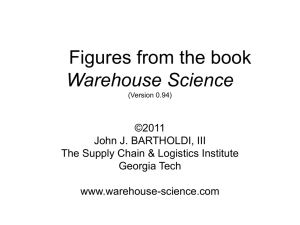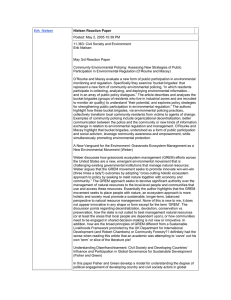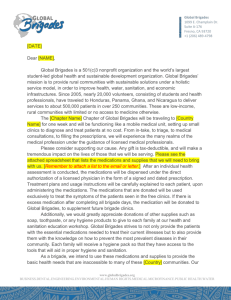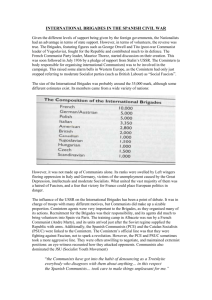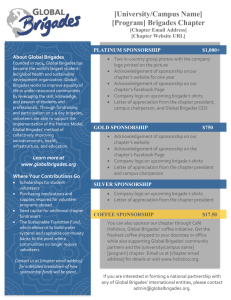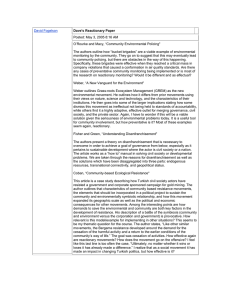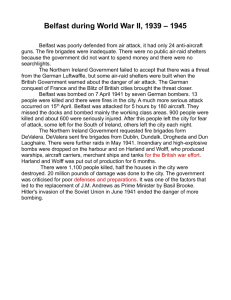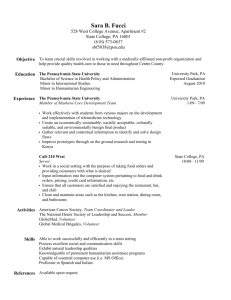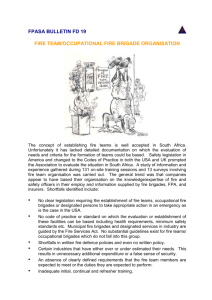Emily Greenspan Reaction Paper for Emily Posted: May 3, 2005 9:45 AM
advertisement
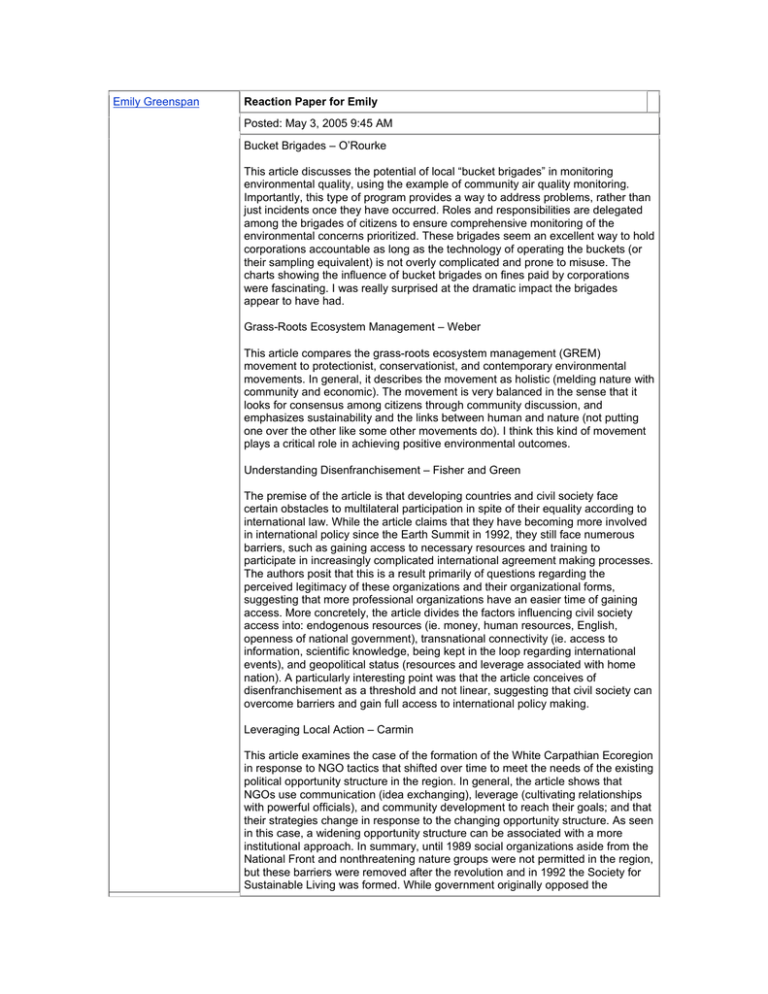
Emily Greenspan Reaction Paper for Emily Posted: May 3, 2005 9:45 AM Bucket Brigades – O’Rourke This article discusses the potential of local “bucket brigades” in monitoring environmental quality, using the example of community air quality monitoring. Importantly, this type of program provides a way to address problems, rather than just incidents once they have occurred. Roles and responsibilities are delegated among the brigades of citizens to ensure comprehensive monitoring of the environmental concerns prioritized. These brigades seem an excellent way to hold corporations accountable as long as the technology of operating the buckets (or their sampling equivalent) is not overly complicated and prone to misuse. The charts showing the influence of bucket brigades on fines paid by corporations were fascinating. I was really surprised at the dramatic impact the brigades appear to have had. Grass-Roots Ecosystem Management – Weber This article compares the grass-roots ecosystem management (GREM) movement to protectionist, conservationist, and contemporary environmental movements. In general, it describes the movement as holistic (melding nature with community and economic). The movement is very balanced in the sense that it looks for consensus among citizens through community discussion, and emphasizes sustainability and the links between human and nature (not putting one over the other like some other movements do). I think this kind of movement plays a critical role in achieving positive environmental outcomes. Understanding Disenfranchisement – Fisher and Green The premise of the article is that developing countries and civil society face certain obstacles to multilateral participation in spite of their equality according to international law. While the article claims that they have becoming more involved in international policy since the Earth Summit in 1992, they still face numerous barriers, such as gaining access to necessary resources and training to participate in increasingly complicated international agreement making processes. The authors posit that this is a result primarily of questions regarding the perceived legitimacy of these organizations and their organizational forms, suggesting that more professional organizations have an easier time of gaining access. More concretely, the article divides the factors influencing civil society access into: endogenous resources (ie. money, human resources, English, openness of national government), transnational connectivity (ie. access to information, scientific knowledge, being kept in the loop regarding international events), and geopolitical status (resources and leverage associated with home nation). A particularly interesting point was that the article conceives of disenfranchisement as a threshold and not linear, suggesting that civil society can overcome barriers and gain full access to international policy making. Leveraging Local Action – Carmin This article examines the case of the formation of the White Carpathian Ecoregion in response to NGO tactics that shifted over time to meet the needs of the existing political opportunity structure in the region. In general, the article shows that NGOs use communication (idea exchanging), leverage (cultivating relationships with powerful officials), and community development to reach their goals; and that their strategies change in response to the changing opportunity structure. As seen in this case, a widening opportunity structure can be associated with a more institutional approach. In summary, until 1989 social organizations aside from the National Front and nonthreatening nature groups were not permitted in the region, but these barriers were removed after the revolution and in 1992 the Society for Sustainable Living was formed. While government originally opposed the formation of a euroregion, NGOs did have some limited contact with each other, and as the opportunity structure began to open community development efforts increased (ie. conferences, festivals, community meetings, surveys, etc.). Political and economic changes around 1998 helped to facilitate more exchange and increased transnational support which led to the emergence of a regional vision, direct collaboration with government, and the signing of a treaty of cooperation to establish the euroregion in July 2000.
